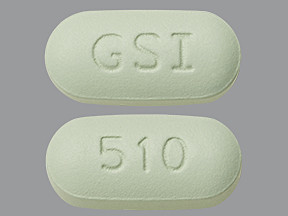ELVITEGRAVIR/COBICISTAT/EMTRICITABINE/TENOFOVIR ALAFENAMIDE - ORAL
PHONETIC PRONUNCIATION: (EL-vi-TEG-ra-vir/koe-BIK-i-stat/EM-trye-SYE-ta-been/ ten-OF-oh-vir AL-a-FEN-a-mide)
COMMON BRAND NAME(S): Genvoya
GENERIC NAME(S): elvitegravir/cobicistat/emtricitabine/tenofovir alafenamide
Uses
USES: This product is used to help control HIV infection. It helps to decrease the amount of HIV in your body so your immune system can work better. This lowers your chance of getting HIV complications (such as new infections, cancer) and improves your quality of life. This product contains 4 different medications: elvitegravir, cobicistat, emtricitabine, and tenofovir alafenamide. Elvitegravir is known as an integrase inhibitor. Cobicistat helps elvitegravir work better. Emtricitabine is called a nucleoside reverse transcriptase inhibitor, while tenofovir alafenamide is called a nucleotide reverse transcriptase inhibitor; both kinds of drugs are often called NRTIs. Elvitegravir/cobicistat/emtricitabine/tenofovir alafenamide is not a cure for HIV infection. To decrease your risk of spreading HIV disease to others, do all of the following: (1) continue to take all HIV medications exactly as prescribed by your doctor, (2) always use an effective barrier method (latex or polyurethane condoms/dental dams) during all sexual activity, and (3) do not share personal items (such as needles/syringes, toothbrushes, and razors) that may have contacted blood or other body fluids. Consult your doctor or pharmacist for more details.
How to use ELVITEGRAVIR/COBICISTAT/EMTRICITABINE/TENOFOVIR ALAFENAMIDE - ORAL
HOW TO USE: Read the Patient Information Leaflet if available from your pharmacist before you start taking this medication and each time you get a refill. If you have any questions, ask your doctor or pharmacist. Take this medication by mouth with food as directed by your doctor, usually once daily. It is very important to continue taking this medication exactly as prescribed by your doctor. Do not skip any doses. If you take antacids, take the antacids at least 2 hours before or 2 hours after this medication. For the best effect, take this medication at evenly spaced times. To help you remember, take this medication at the same time every day. Do not take more or less of this drug than prescribed or stop taking it even for a short time unless directed to do so by your doctor. Doing so may cause the amount of virus to increase, make the infection more difficult to treat (resistant), or worsen side effects.
Side Effects
Precautions
Interactions
Overdose
Images
Reviews
Faq for ELVITEGRAVIR/COBICISTAT/EMTRICITABINE/TENOFOVIR ALAFENAMIDE - ORAL
- Elvitegravir/Cobicistat/Emtricitabine/Tenofovir Alafenamide is used to treat HIV infection. It belongs to a class of drugs called antiretrovirals and helps to prevent the virus from multiplying in the body.
- Take this medication exactly as prescribed by your doctor. Usually, it is taken once a day with food. It is important to take it consistently to maintain effective levels in your body.
- The common side effects may include nausea, diarrhea, headache, tiredness, or trouble sleeping. However, if these side effects persist or worsen, contact your doctor promptly.
- It is generally advised to avoid excessive alcohol consumption while taking this medication. Alcohol can increase the risk of liver toxicity and decrease the effectiveness of the medication.
- Yes, this medication can interact with other drugs, such as certain antibiotics, antifungals, anticonvulsants, and other HIV medications. Inform your doctor about all the medications you are currently taking to avoid potential interactions.
- The duration of treatment will be determined by your doctor based on your individual circumstances. It is typically a long-term therapy, and stopping it without medical advice can lead to a resurgence of the HIV infection.
- No, this medication does not cure HIV but helps to control the virus and prevent it from multiplying. It is important to continue taking it as prescribed, even if you feel well, to maintain its effectiveness in managing your HIV infection.
Warning
WARNING: If you have hepatitis B infection, your hepatitis symptoms may get worse or become very serious if you stop taking this medication. Talk with your doctor before stopping this medication. Your doctor will monitor liver tests for several months after you stop elvitegravir/cobicistat/emtricitabine/tenofovir alafenamide. Tell your doctor right away if you have symptoms of worsening liver problems.
Disclaimer
IMPORTANT: HOW TO USE THIS INFORMATION: This is a summary and does NOT have all possible information about this product. This information does not assure that this product is safe, effective, or appropriate for you. This information is not individual medical advice and does not substitute for the advice of your health care professional. Always ask your health care professional for complete information about this product and your specific health needs.

No Reviews Yet